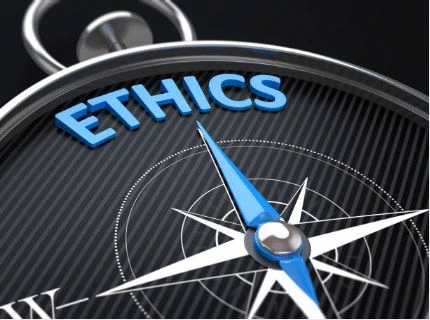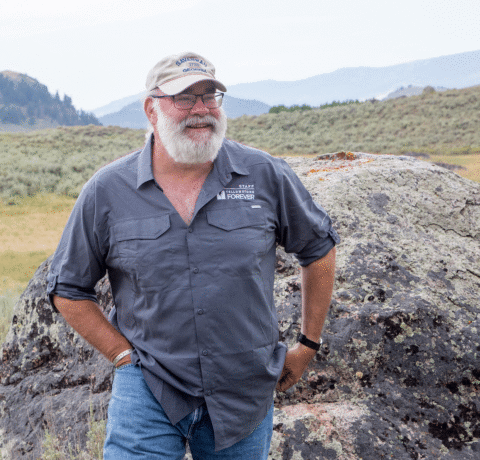Ethics, Integrity, and Behavior: Part One
Geoethics across our discipline:
Accepted Standards and Adopted Codes
"I found the webinars useful, especially in my new role as Associate Director of the Survey. So many of the talking points can be applied to administrative thinking as well as personal accountability. Thank you for hosting."
- Barbara Lusardi, Geologist and Associate Director, Minnesota Geological Survey
"I've been pleasantly surprised by how well-done the (MidwestGeo Ethics Webinar) curriculum is. I wasn't expecting to enjoy (these ethics webinars). But that's because I've seen this topic covered sooooooooo pooooooorly that I basically go into these types of webinars not expecting much. I'm looking forward to the next installments!!"
- Candid, anonymous, 2020 ethics webinar participant.
Get the answer to this question during this webinar:
What important roles do Geoethics play in the day-to-day workplace life of an environmental and engineering professional?
This webinar is more important than ever, because:
 Geoethics have risen to the forefront and are in the spotlight across scientific disciplines, professional societies, federal agencies, and institutions of work and learning. Ethical behavior is also explicitly defined in most licensure codes for geologists and engineers. This webinar will examine the basic premise of geoethics and ethical behaviors for practicing Earth Scientists.
Geoethics have risen to the forefront and are in the spotlight across scientific disciplines, professional societies, federal agencies, and institutions of work and learning. Ethical behavior is also explicitly defined in most licensure codes for geologists and engineers. This webinar will examine the basic premise of geoethics and ethical behaviors for practicing Earth Scientists.
Premise
Beginning with basic definitions as accepted by our industry, we will review the formal ethics statements, accepted standards, and adopted codes that impact our profession.
As clearly articulated in the Cape Town Statement on Geoethics, which we will examine in this webinar, "Embracing geoethics is essential: to improve both the quality of professional work and the credibility of geoscientists, to foster excellence in geosciences, to assure sustainable benefits for communities, as well as to protect local and global environments..."
Those are admirable, necessary, and worthy goals that we will illuminate in this webinar and are found no where else on the web.

We are in a profession that demands sound technical judgments and decisions with fearless integrity and clear accuracy.
Ask Yourself...
- ... what do we mean by Geoethics?-we'll figure that out.
- ... what do Geoethics have to do with my job?-we'll try to explain that.
- ... can I do what I do a bit better with an understanding of geoethics?-Yes you can!
Immediately benefit from:
- Geoethics-It's the right thing to do!
- Your profession, explicitly through licensure & disciplinary society codes, demands the understanding and practice of ethical behaviors, and you will be exposed to the expectations of ethical behaviors.
- You will understand the salient elements in the adopted codes of the disciplinary societies that represent our profession and provide certification to earth and environmental scientists and engineers.
- You will be empowered to develop a more comfortable and productive workplace for you and your team.
- Your clients will know they are working with ethically responsible professionals.
- You will meet licensure requirements for ethics continuing education.
Instructors Bio
Paul Doss, Ph.D.
 Paul Doss, PhD earned his BS from IUPUI and his PhD from Northern Illinois University. He is currently Professor of Geology at the Univ. of Southern Indiana, where he served as Department Chairman for eight years, and teaches courses on Environmental Geology-Environmental Science, Geology of National Parks, and Water Resources.
Paul Doss, PhD earned his BS from IUPUI and his PhD from Northern Illinois University. He is currently Professor of Geology at the Univ. of Southern Indiana, where he served as Department Chairman for eight years, and teaches courses on Environmental Geology-Environmental Science, Geology of National Parks, and Water Resources.
He directs student research on environmental problems such as impacts of humans on water resources, natural-resources management, and geological hazards. Doss served as the Supervisory Geologist for Yellowstone National Park and the NPS Coordinating Scientist for the Yellowstone Volcano Observatory, and also worked in Indiana Dunes, Acadia, and Everglades National Parks.
He was named the Integra Distinguished Professor at USI in 2007, received natural resource protection awards from the National Park Service and the US Forest Service, and was named IUPUI School of Science Distinguished Alumnus in 2016. His current research focuses on potential impacts of commercial groundwater extraction, ecosystem restoration, and climate change on aquatic resources in Manistee National Forest of Michigan.
Doss served as Chair of the Geological Society of America's national committee on Geology and Public Policy, has served on municipal planning boards, and natural resource conservation committees, and was a Visiting Scholar for Earth Science Policy in Washington DC in 2017. He is a long-term instructor for the Yellowstone Forever Institute and the Southern Indiana Master Naturalist program.